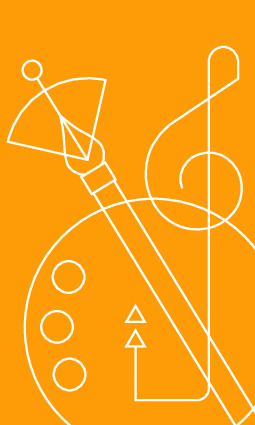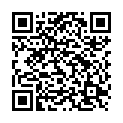|
|
|
| Module code: MAKM-313 |
|
4S (4 hours per week) |
|
6 |
| Semester: 3 |
| Mandatory course: no |
Language of instruction:
German |
Assessment:
Written composition and presentation = performance
[updated 24.09.2020]
|
Exam recurrence:
The information regarding exam recurrence is found within the exam policy of the study programme (ASPO).
|
MAKM-313 Cultural Management, Master, ASPO 01.04.2020
, semester 3, optional course, course inactive since 23.05.2025
|
60 class hours (= 45 clock hours) over a 15-week period.
The total student study time is 180 hours (equivalent to 6 ECTS credits).
There are therefore 135 hours available for class preparation and follow-up work and exam preparation.
|
Recommended prerequisites (modules):
None.
|
Recommended as prerequisite for:
|
Module coordinator:
Prof. Dr. Nicole Schwarz |
Lecturer:
Dozierende des Studiengangs
[updated 03.06.2025]
|
Learning outcomes:
Students will develop, expand and deepen their specialized and methodological knowledge on the following points in relation to the following topics:
Learning outcomes for personal skills:
Students will be able to perceive and describe the moods/feelings of people in a more targeted way by systematically analyzing language and body language.
Students will be able to describe themselves verbally through self-awareness and body-awareness exercises.
Students will be able to test and expand their individual body language skills within the framework of mental and physical training.
Students will be able to take on different roles, grasp the range of their expressions and develop them further.
Level of personal skills:
_ General perception training
_ Improve communication skills
_ Raise awareness for the expression of one´s own body
_ Improve the ability to express oneself through body language
_ Self-awareness by expanding body awareness and self-awareness in various roles
Learning outcomes for theater-related skills:
Students will become familiar with different warm-up methods and can apply them independently.
Students will be able to engage in free and guided improvisations and help shape them.
Students will have the ability to empathize with different roles and shape them mentally, as well as through the use of body language and words.
Students will be able to improvise in front of and with the audience in one or more roles.
Students will be familiar with the principles of setting up scenes and can apply them creatively.
Students will be able to enter a stage in a role, make the space visible for spectators through body language and thus, appropriate the stage as a venue.
Students will have the experience of performing in front of course participants and other audiences and be able to evaluate and reflect on their performaces, as well as present their results verbally.
Students will be capable of expanding the content of the module independently based on literature they have chosen themselves.
Theater-related skills:
_ Different warm-up methods
_ free and guided individual, pair and group improvisations
_ Empathizing with different roles
_ Improvising in one or more roles in front of and with the audience
_ Stage presence / taking the stage
_ Basics of setting up scenes
_ Experience with appearing in front of an audience
[updated 24.09.2020]
|
Module content:
_ Self-perception / external perception (also in victim/offender situations)
_ Body work
_ Improvisation
_ Role work / Developing one or more roles
_ Scene work based on the Forum Theater according to Augusto Boal
_ Organizing and managing performances
_ Appearing in front of an unknown audience
_ Evaluating theater events
[updated 24.09.2020]
|
Teaching methods/Media:
Instruction in:
_ self-awareness / body-experience (also in victim/offender situations)
_ trust exercises
_ feedback training
_ free and guided individual, pair and group improvisations
_ role work / individual and group role work
_ organizing and managing performances
_ role/scene discourse / teamwork
_ Evaluation exercises
[updated 24.09.2020]
|
Recommended or required reading:
_ Augusto Boal: Theater der Unterdrückten. Suhrkamp 1976.
_ Boal, Augusto (1999): Der Regenbogen der Wünsche. Kallmeyer, Seelze (Velber).
_ Fo, Dario (o. J., vermutlich 1978?): Dario Fo über Dario Fo. Prometh-Verlag, Köln.
_ Grotowski, Jerzy (1994): Für ein armes Theater. Alexander-Verlag, Berlin.
_ Koch,G.& Vaßen, F., (Hrsg) (1991). Lach- und Clownstheater. Die Vielfalt des Komischen in Musik, Literatur, Film und Schauspiel. Frankfurt/Main
_ Müller, G. (1964). Theorie der Komik. Würzburg
_ Gipser, D. (1991). Lachen gegen Macht? Gedanken zur Funktion des Lachens im szenischen Spiel. In: Koch,G.& Vaßen, F. (Hrsg), Lach- und Clownstheater. Die Vielfalt des Komischen in Musik, Literatur, Film und Schauspiel. Frankfurt/Main. pp. 38 - 41
_ Menzlaw, W. (1991). Lachen hat viele Gesichter. In: Koch, G.& Vaßen, F. (Hrsg), Lach- und Clownstheater. Die Vielfalt des Komischen in Musik, Literatur, Film und Schauspiel. Frankfurt/Main. pp.108-118
_ Odierna, Simone; Letsch, Fritz (Hg.) (2006): Theater macht Politik. Forumtheater nach Augusto Boal. Ein Werkstattbuch. Erschienen in der Reihe "Gautinger Protokolle" des Instituts für Jugendarbeit in Gauting. AG SPAK-Verlag. Neu-Ulm.
_ Piscator, Erwin (1977): Theater der Auseinandersetzung. Ausgewählte Schriften und Reden. Suhrkamp, Frankfurt am Main.
_ Odierna, Simone: Mit Boal gegen Gewalt. Forumtheater in der kulturellen Schulsozialarbeit. gruppe und spiel 1/06, (pp. 38-41)
_ Odierna, Simone (2007): Soziales Lernen und Zivilcourage - Forumtheater zur Gewaltprävention in der Schule. In: Bischoff, Johann; Brandi, Bettina (Hrsg.) (2007): Theater. Medien. Polis. Kulturpädagogik im gesellschaftlichen Engagement. Merseburger Medienpädagogische Schriften. Band 3. Aachen.
_ Odierna, Simone (2013): Forumtheater im Gemeinwesen. In: Stövesand, Sabine u.a. (Hg.): Handbuch Gemeinwesenarbeit. Budrich-Verlag. Leverkusen. (erscheint im Sommer 2013)
_ Titze, M (1995). Humor als Therapie. _Lachen über diese seltsame, törichte Welt_. Psychologie Heute, 9, pp.22-25
_ Tucholski, Kurt (1930): Zuckerbrot und Peitsche.
[updated 24.09.2020]
|


